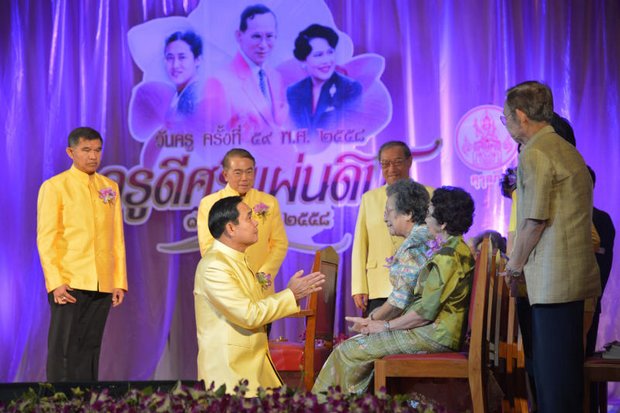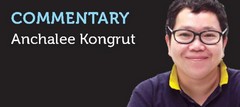
Today is National Teacher's Day in Thailand. But Sangsoem Harntalay, a renowned teacher at Ban Koh Adang, a school on Lipe Island, a famous tourism destination in the Andaman Sea in Satun province, sees no cause to celebrate.
On the contrary, the 33-year-old feels teachers are being blamed for all the faults and failures of the Thai education system.
"When Thai kids receive a poor rating in a PISA [Programme for International Student Assessment] test, teachers get the blame. When the rating of education in Thailand flunks, teachers and rote learning are to blame," she says.
I met Ms Sangsoem in 2015 when I visited her school to write about her famous class called "Lak Sooj Attalak Chao Lay", a special Urak Lawoi cultural identity curriculum taught since 2008. Ban Koh Adang is the first school in the area to offer this type of programme.

Anchalee Kongrut writes about the environment in the Life section, Bangkok Post.
The class is designed to help Ulak Lawoi children to "modernise" their sea gypsy way of life without losing their cultural heritage. Classes include ethnic music, drawing, map-making and theatrical performances. I found her class highly creative, fun and relevant.
Yet she told me in a recent phone interview that the real life of a state teacher is not just about conducting interesting classes and spending time only with students.
"Indeed, state teachers in Thailand do not have enough time to teach. Teachers are buried by so many tasks," she said.
"We are asked to write many reports, including those about the eyesight problems of students, or even their dental problems. We are asked to help realise government policies and take students to state activities that come about so very often. These tasks occupy our time when trying to work with children."
Ms Saengsoem also helps her community fight land-grabbers on the flourishing tourist island.
"But I do not get promoted for community development. Teachers often get ahead in their careers by doing research on academic subjects, or getting students to compete in academic campaigns."
Ms Saengsoem is one of my favourite teachers even though I never studied with her. She reminds me of the teachers during my high school years when she says she is happy when her students are happy and progress well in life.
I always think of teachers as special. Most people feel content with their own success. Yet the majority of teachers I meet often tell me they feel professionally rewarded when they know their students are happy and successful in life -- even more successful than them (parents have this same quality.)
I also enjoy talking to Ms Saengsoem about social problems, including those concerning education policies.
"Teachers want consistency in education policies," she says. "But we have to adapt to new policies introduced whenever a new political party comes to power. There should be long-term educational policies similar to what we have for the national economic and social development plan, that are implemented over a long period of time."
Our educators, especially those at the Ministry of Education, need a big round of applause for their ability to adapt to different policies. The ministry is known for its high turnover of policy-makers. It is reported that the average term of an education minister is just one and a half years. The shortest term on record is two months. The longest is 11 years under revered educationist ML Pin Malakul in the late 50s and 60s.
"Society needs to come to terms with the fact that our education problems are not only about the issues of teaching methods or quality of teachers, or even the welfare of teachers.
"Our educational problems are the result of changing society, family values, policies and even politics, law enforcement and many other things. It is about students, parents and teachers. Unless society comes to term with this truth, we will not be able to solve the education problems at the core."
This provincial teacher from a poor sea gypsy family might not be right at all things she says. But I think she is quite right when she says that teachers are becoming scapegoats for our failing education system.
In terms of education, I have always believed in the old proverb: "It takes a village to raise a child. To make a child into a knowledgable and moral human being, we leave too much a burden to teachers and shift all blame to them when things go wrong."
So, To Sirs with Love on National Teacher's Day: Despite some bad apples in our classrooms, our teachers still deserve respect.
